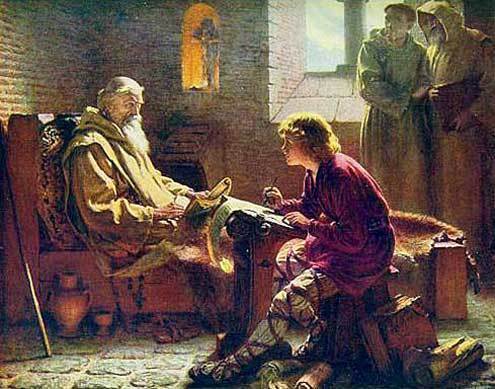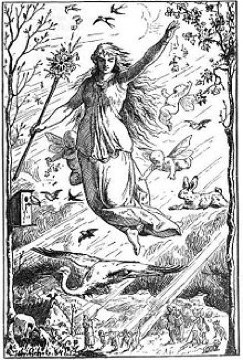Tue 7 Apr 2020
How the Easter bunny came to be part of celebrating Jesus’ resurrection, a redux
Posted by DavidMitchell under History
Comments Off on How the Easter bunny came to be part of celebrating Jesus’ resurrection, a redux
This posting was written in 2011, and year in and year out since then, it has continued to draw surprisingly steady readership. With Easter Sunday coming up this weekend, I thought it might be fun to post it again.
Easter will be celebrated on Sunday, making this an appropriate time to ask: do you know where the word comes from? Easter is never mentioned in the Bible. In fact, Easter as we know it originated in the pagan world.

This story begins with Gregory the Great (above), who was pope from 590 to 604. At the time, England was populated by pagan Anglo-Saxons, and this prompted Pope Gregory to send a mission to England to convert them to Catholicism.
The conversions would be easier, Pope Gregory wrote Archbishop Mellitus, if those being converted were allowed to retain their pagan traditions. They would simply be told that their rituals, in fact, honored the Christian God.
Missionaries should accommodate the Anglo-Saxons in this way, as the pope put it, “to the end that, whilst some gratifications are outwardly permitted them, they may the more easily consent to the inward consolations of the grace of God.”
Among the “gratifications” permitted were Easter festivities, which had been a pagan celebration of spring. Because the actual date of Jesus’ death is unknown, the missionaries could tell the Anglo-Saxons that their spring celebration should go on as always but to understand it was really all about Jesus’ resurrection.
This redirecting of traditions was so successful that the church then used it to convert pagans in the Netherlands and Germany.
.
The Venerable Bede is responsible for our knowing the origin of the word Easter.
A Christian scholar, the Venerable Bede (672-735), a century later wrote that Easter took its name from Eostre, also known as Eastre. Eostre was the Great Mother Goddess of the Saxon people in Northern Europe.

Similarly, some of the Teutonic names for the goddess of dawn and fertility (above) were Ostare, Ostara, Ostern, Eostra, Eostre, Eostur, Eastra, and Eastur. These names were derived from an old Germanic word for spring, “eastre.”
Since ancient times, spring has been seen as a time of fertility, so it was not surprising that among the pagan symbols of the season were rabbits (because large litters are born in early spring) and decorated eggs (because wild birds lay eggs in spring).

Bizarrely, these pagan symbols became so intertwined that Easter Bunnies ended up distributing Easter Eggs.
And so it was that in this roundabout way Pope Gregory I unintentionally helped bring about a goofy bunny’s becoming associated with

the resurrection of Jesus, who is seen appearing to Mary Magdalene as she weeps outside his tomb.

No Responses to “ How the Easter bunny came to be part of celebrating Jesus’ resurrection, a redux ”
Sorry, comments for this entry are closed at this time.